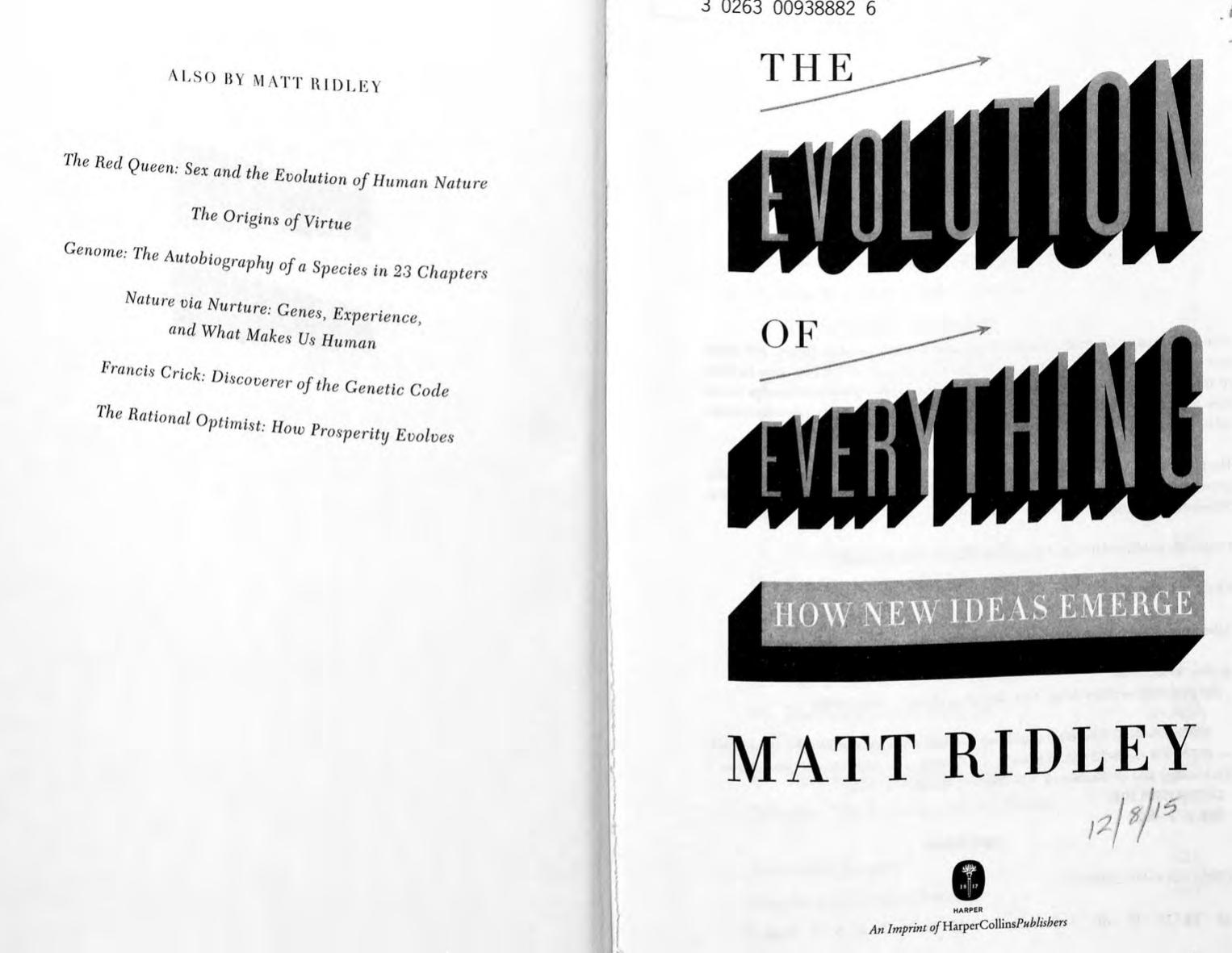The Evolution of Everything: How New Ideas Emerge by Matt Ridley

Author:Matt Ridley
Language: eng
Format: mobi, pdf
Publisher: HarperCollins
Published: 2015-10-26T14:00:00+00:00
The technology of education
The impact of profit-seeking education is not confined to poor countries. In Sweden, profit-making schools have been a competitive spur to state schools, raising standards and increasing teacher contact time. The charitable status of most elite private schools in Britain is probably getting in the way of their investment and expansion.
Technology is about to change education still more radically. The Bridge International Academies group is now running two hundred low-cost, for-profit schools in Kenya, using a syllabus scripted for the teachers and delivered by tablet computer – the computer also acting as a monitoring device to check that teachers are teaching. The idea here is that pupils should not be limited by the quality of teacher available in their district, but should get access to best practice from wherever in the world it can be supplied, via a local teacher. It’s similar to the way the Khan Academy now offers more than 4,000 short videos of high-quality private tuition that anybody can use, on almost any topic. Or to the proliferation of ‘massive open online courses’ (MOOCs), by which top lecturers at elite universities can now be watched, and their courses taken, by thousands of eager students, not just those lucky enough to attend Stanford or MIT. Just as you do not have to listen to the local singer, but can hear Placido Domingo, so you do not have to be taught by the local teacher in the modern world. You can seek out the very best. At the other end of the spectrum is the Minerva Academy, a private college founded by the tech entrepreneur Ben Nelson in San Francisco, which is a small, indeed minimal, real university in which students live together as normal, but without all the normal features of such institutions, especially lectures, which are replaced by online, interactive seminars. Lectures, says Minerva’s Stephen Kosslyn, are ‘a great way to teach, but a terrible way to learn’.
The traditional university will surely be gone in fifty years, swept away by technology. Why pay huge fees to spend three years on one campus, earning the right to be paid not very much more in the real world than non-graduates, rather than putting together your own combination of online courses, marked and graded online, using the lectures of the best teachers in the field wherever they happen to be? When Sebastian Thrun, an artificial-intelligence expert, sent out one email announcing that he would teach a course not just to his students at Stanford but to whoever wanted to listen in on the internet, tens of thousands took the course. Over four hundred of them got better grades than the top student at Stanford.
In fact, why not cut out the human almost entirely? When Sugata Mitra first put a computer with online access in a hole in a wall in a Delhi slum, he did not know what to expect. He watched as children crowded round the screen and began to play with the internet. Within weeks,
Download
The Evolution of Everything: How New Ideas Emerge by Matt Ridley.pdf
This site does not store any files on its server. We only index and link to content provided by other sites. Please contact the content providers to delete copyright contents if any and email us, we'll remove relevant links or contents immediately.
| Anthropology | Archaeology |
| Philosophy | Politics & Government |
| Social Sciences | Sociology |
| Women's Studies |
Cecilia; Or, Memoirs of an Heiress — Volume 1 by Fanny Burney(32538)
Cecilia; Or, Memoirs of an Heiress — Volume 2 by Fanny Burney(31936)
Cecilia; Or, Memoirs of an Heiress — Volume 3 by Fanny Burney(31925)
The Great Music City by Andrea Baker(31911)
We're Going to Need More Wine by Gabrielle Union(19032)
All the Missing Girls by Megan Miranda(15927)
Pimp by Iceberg Slim(14476)
Bombshells: Glamour Girls of a Lifetime by Sullivan Steve(14046)
For the Love of Europe by Rick Steves(13872)
Talking to Strangers by Malcolm Gladwell(13341)
Norse Mythology by Gaiman Neil(13333)
Fifty Shades Freed by E L James(13229)
Mindhunter: Inside the FBI's Elite Serial Crime Unit by John E. Douglas & Mark Olshaker(9313)
Crazy Rich Asians by Kevin Kwan(9271)
The Lost Art of Listening by Michael P. Nichols(7487)
Enlightenment Now: The Case for Reason, Science, Humanism, and Progress by Steven Pinker(7303)
The Four Agreements by Don Miguel Ruiz(6739)
Bad Blood by John Carreyrou(6610)
Weapons of Math Destruction by Cathy O'Neil(6261)
